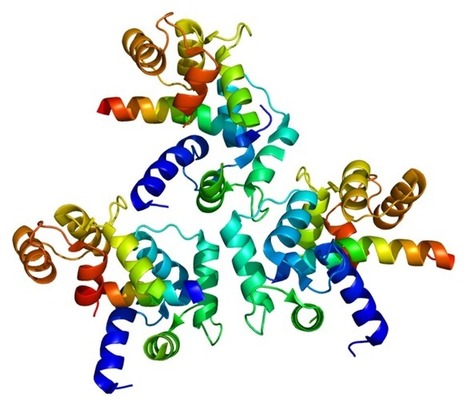High levels of sugar, fat and salt, and various flavors and food additives might actually hijack the pathways of the brain in ways that are similar to opiates and other drugs.
The evidence suggests that sugar in particular stimulates a greater release of chemicals in the brain — including dopamine, the “pleasure molecule” — than releases triggered by, say, fruit and vegetables. Over time, the brain’s circuitry might become rewired to produce less dopamine in response to high-calorie, flavor-enhanced foods.



 Your new post is loading...
Your new post is loading...








